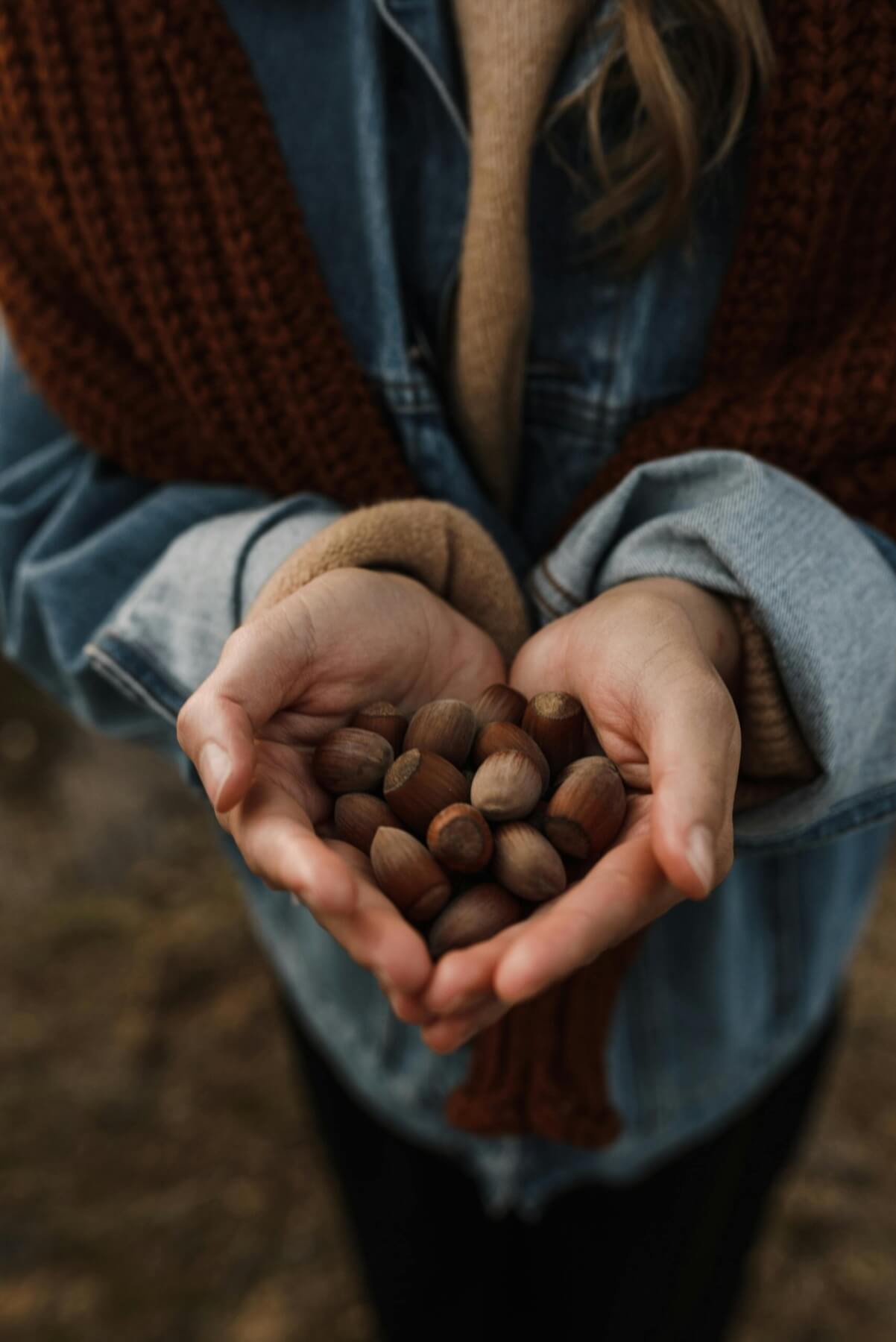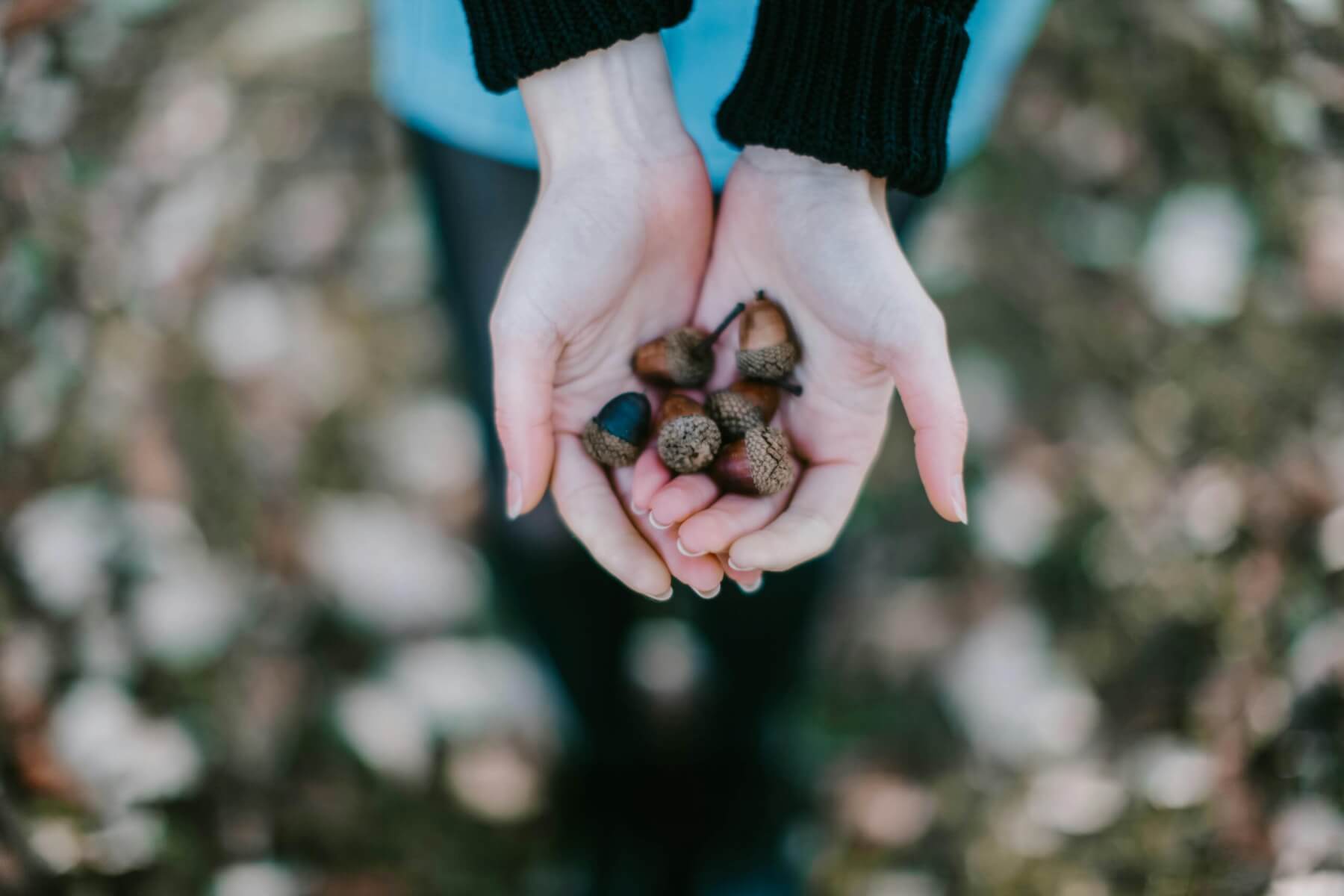
Acorns. Photo: Leah Newhouse. pexels.com
One morning weeks ago, ‘multiplied thousands’ of acorns strewn across Cambridge’s town-centre park, caught my attention. (conservative ‘guesstimate’ as I’ve promised myself millions of times to never exaggerate!)
Scattered everywhere, innumerable dew-covered acorns sparkled like gemstones! Sunlight filtered through leafy branches of oak trees encircling the park, gently diffusing the early morning mist. I paused trying to preserve this dazzling moment with a photograph. Probably not everybody admires acorns, or stops to take pictures of them, but these ordinary acorns had assumed a temporary beauty that I struggled to capture with my phone.
I found myself musing how acorns parallel people in some respects. Though quite special, these little nuts are prone to being overlooked. Many differing species of oak trees produce acorns that are all unique to the species they originate from. Falling to the ground in their hundreds, acorns often tend to get viewed as a nuisance – seemingly useless and ordinary, they’re often just discarded. Like people they can be unappreciated, trodden underfoot.
In ancient times, acorns were seen as a symbol of potential and growth. Just as a tiny acorn can grow into a mighty oak, it was believed that holding onto an acorn could inspire personal development and the fulfilment of dreams.
The acorns commonly seen in New Zealand can be rendered edible. You could roast them or grind them into flour for various uses if they’re processed first to remove tannins. These naturally occurring chemical compounds occurring in plants (including grapes, tea, nuts and some fruits), tend to make acorns bitter and inedible. There again, is a likeness – people are often toxic, in need of processing…and ‘sweetening’!
Dropping onto the ground, acorns are capable of becoming mighty oak trees. But evidently only one acorn in 10,000 will grow into an oak tree. In this, I see yet another contrast with human beings. Few acorns apparently reach their actual potential – many get removed or are carried off to new locations by foraging creatures as a meal to be devoured. Similarly, people become consumed by predators… depression, discouragement, shame, hopelessness, anxiety, disappointment and other distracting influences swallow up the hope of many ever reaching their full potential.
For acorns to survive and sprout, it requires special conditions. They must remain at certain temperatures over four to eight weeks. If it’s too warm or too cold, the process does not start. Similarly, people need optimum conditions to thrive…think love, respect, encouragement and care, among other necessities.
Acorns possess little inherent beauty or value, although adorned with dew on that sun-kissed morning, they sparkled gloriously like jewels. Human beings ARE however inherently beautiful and valuable since we were created uniquely and purposefully by God – in His likeness! God’s intention always was for humanity to reflect and showcase His glory- a plan thwarted by something we’re all guilty of…our wilful bias towards sinfulness. His merciful recovery plan extends forgiveness and grace, restoration and reconciliation to anyone humble enough to abandon independent self-effort and receive Him…
The Bible puts it this way –
‘As God’s masterpiece, He creates us anew in Jesus Christ, to do the good things He purposed for us to do, long ago.’











